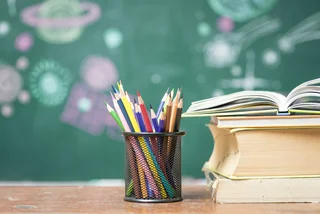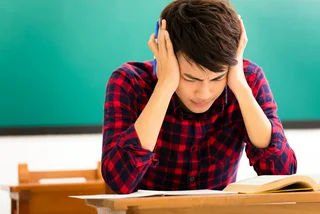Czech PM Petr Fiala’s government is planning sweeping reforms to the nation’s education system including a major restructuring of school-leaving exams.
In an online debate yesterday the new Minister of Education Petr Gazdík spoke about upcoming curriculum changes and the ministry’s plans to launch an information campaign geared at showing parents how such changes are critical to Czech education reform.
PARTNER ARTICLE
In Thursday's debate, Gazdík told a panel of education professionals that he believes the success of the changes hinges on whether parents will be able to identify with them.
"Each of us wants the best for children and many of us think that the way we learned is also the way children must learn," Gazdík said.
Gazdík honed in on rote learning specifically, saying that the goal of reducing learning via repetition won’t make children less educated but will rather help them achieve a higher level of education.
The Ministry of Education says it is committed to a complete overhaul of educational programs by the end of 2023.
Key changes to education include reducing the overall volume of the curriculum and encouraging students to understand the material, rather than memorizing things. More space would be created for teamwork and the development of pupils' creativity.
How does the Czech approach to education need to change?
In an interview with Czech server iRozhlas Gazdík spoke specifically about changes to the Czech school-leaving exam.
“Our goal will be to find a version of the high school diploma that will last at least ten years. Because the fact that it changes every year is deplorable for both students and teachers, as well as for parents,” he said.
He said that the ministry is planning a more flexible approach to exams that would allow students to take parts of them, in a foreign language or math for instance, earlier in the year as well as give final-year students multiple chances to complete the graduation exam.
“This will greatly increase the motivation of students to try,” Gazdík said. “It also prevents one, two, or three days at the end of the school year from determining your whole life.”
Czech state schools have traditionally been criticized for outdated and rigid teaching methods which emphasize rote learning and memorization, although an earlier study by the US Department of Education found that Czech students excelled over their American counterparts in math and sciences.
In recent years, a more student-focused approach has slowly become the norm.
At the beginning of the 2021 school year, for instance, several hundred primary schools across the country were introduced to a new approach to learning 20th-century history as part of a Ministry of Education-backed pilot project, encouraging teachers to implement research-based learning and emphasize critical thinking, rather than memorizing historical facts.












 Reading time: 2 minutes
Reading time: 2 minutes 






























